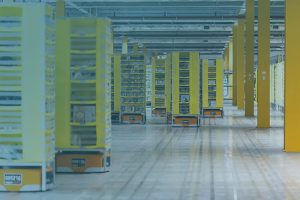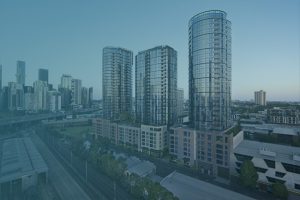Investor Sentiment
April 14th 2018 | , Urban Property Australia
As part of the 1Q 2018 Situs RERC/UPA Australian Market Expectations survey, respondents were asked to provide insight for commercial real estate across five of the capital cities (Adelaide, Brisbane, Melbourne, Perth and Sydney) over the next year.
Respondents who contributed to the 1Q 2018 Situs RERC/UPA Australian Market Expectations Survey consisted of landlords, fund managers, investment bankers, REIT analysts, superannuation (pension) funds, valuers/appraisers, financiers, private investors and real estate agents. The variety of respondents ensured that the analysis of the survey offers insight into investor sentiment and provides a useful tool to evaluate investment trends for the commercial real estate market.
Buy-Sell-Hold Recommendations
Overall, the 1Q 2018 survey results revealed that respondents indicated that it was a good time to hold Australian commercial real estate, which accounted for 44% of respondents, followed by respondents who believed it was the best time to sell Australian commercial real estate (37%) (see Exhibit 18). Reflecting the strong capital growth recorded across the Australian commercial real estate market, buying commercial real estate was the least appealing investment option to respondents. Buying Australian commercial real estate accounted for 19% of all responses.
Most investors (44%) thought it was a good idea to hold Australian commercial real estate.
Within Sydney and Melbourne, only 17% and 18% of all survey respondents, respectively, judged that it is a good time to buy commercial real estate. In contrast, 50% of respondents said that the next quarter would be a good time to sell commercial real estate in Sydney. Similarly, for Melbourne commercial real estate assets, 41% of respondents said that the next quarter would be a good time to sell commercial real estate.
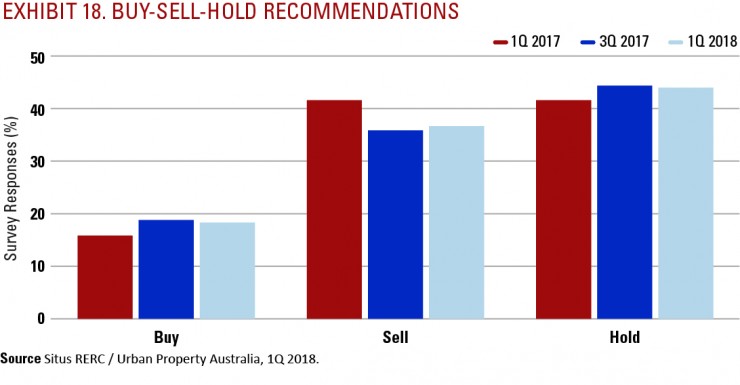
Investment Conditions
For Australia overall, a clear divergence is emerging between the retail sector and the other sectors. Investment conditions for CBD office, suburban office and industrial were considered above average in 1Q 2018 (see Exhibit 19). For the CBD office sector, the majority of respondents (72%) said that investment conditions were above average or excellent. The most prevalent response for the suburban office market was that investment conditions were above average or excellent (52%), up from 39% recorded in 3Q 2017. The structural changes of the retail sector adversely impacted investor sentiment with investment conditions for both retail shopping centres and retail big box/bulky goods/large format sectors appraised as below average overall. In contrast, the industrial sector increased to its highest rating of survey responses with 64% of respondents assessing investment conditions as above average or excellent.
A clear divergence is emerging between the retail sector and the other sectors. Investment conditions for CBD office, suburban office and industrial were considered above average, while the retail sectors were considered below average.
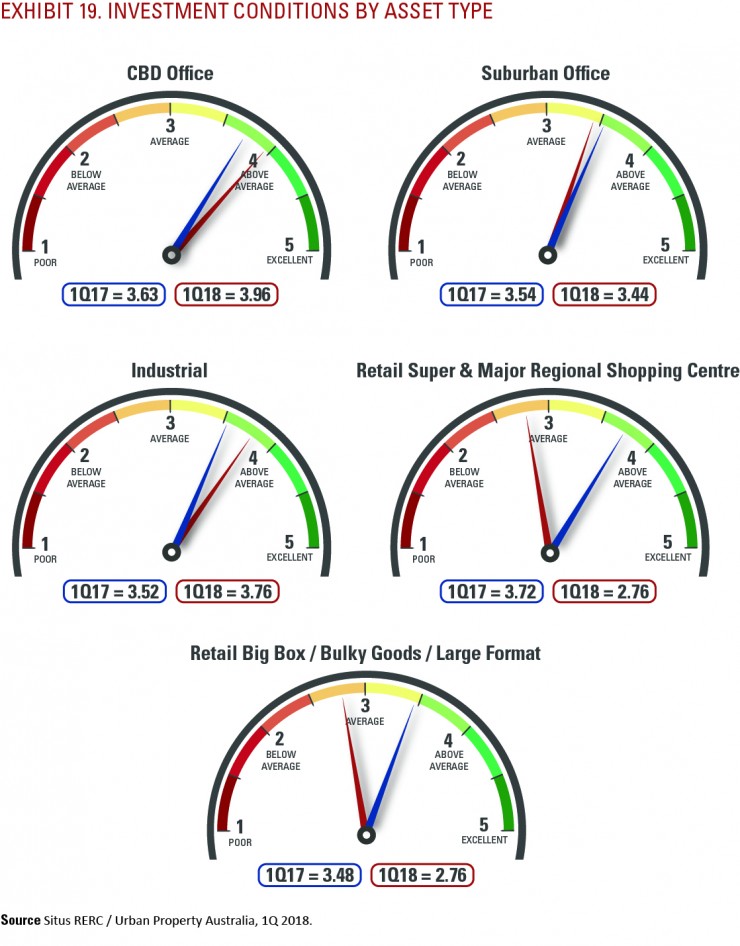
Investment Opportunities
The suburban sector overtook the CBD office sector as the preferred asset class for investment over other property sectors in the next 12 months as of 1Q 2018, as shown in Exhibit 20. The record-low cap rates recorded in the CBD office sector have increased investor focus on non-CBD office markets. The fundamental shift created by the expansion of e-commerce has shifted investor sentiment regarding the retail and industrial sectors. The proportion of respondents who ranked industrial property as the best investment opportunity increased to 28%, from 16% in 1Q 2017. In contrast, the retail sector was considered the best investment opportunity by only 12% of respondents.
The record-low cap rates recorded in the CBD office sector have increased investor focus on non-CBD office with the sector ranked as the best investment opportunity in 2018.
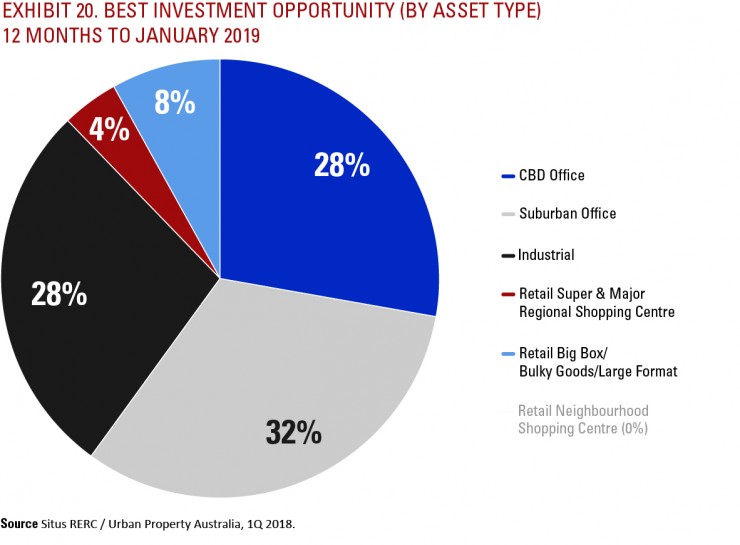
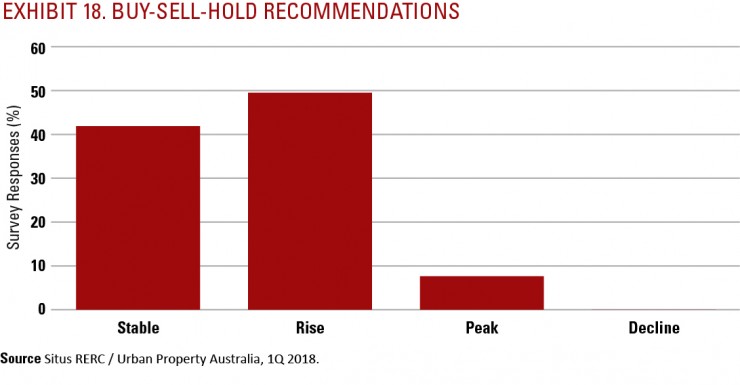
Australian Economy and Interest Rate Outlook
In terms of the performance of the Australian economy during the next 12 months, the largest number of survey respondents (50%) predicted that the Australian economy will grow, while 42% of respondents predicted that the Australian economy will remain stable (see Exhibit 21). The remaining 8% of survey respondents predicted the Australian economy will peak in 2018, up from 2% recorded in 3Q 2017.
92% of survey respondents predicted that the Australian economy will rise or remain stable over the next 12 months.

